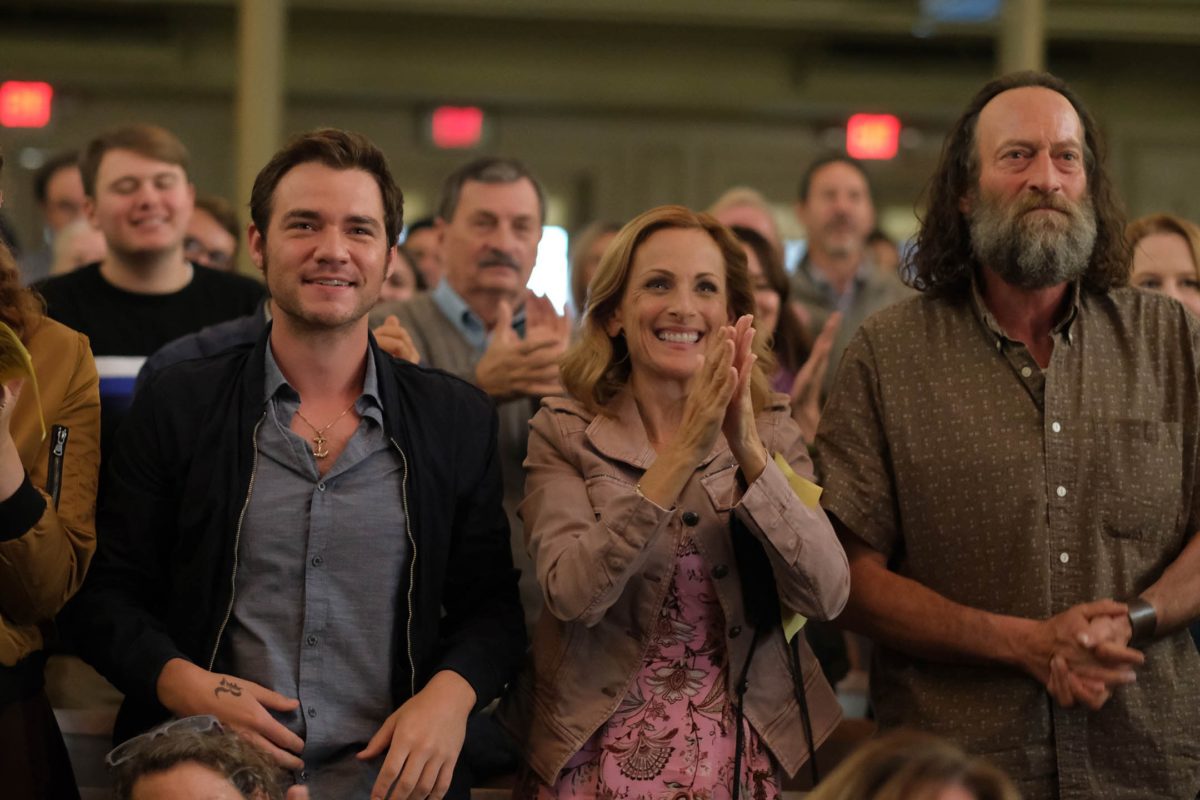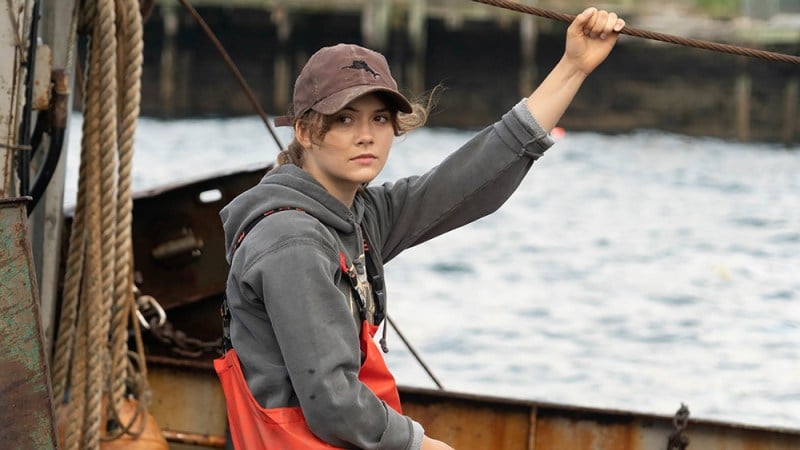This is the sixth piece in the Sundance Film Festival 2021 series by Julie Fukunaga and Olivia Popp. Follow along for coverage of films from Sundance’s reimagined virtual festival.
The sophomore feature of Siân Heder (co-showrunner of Apple TV’s “Little America” and former writer for Netflix’s “Orange Is the New Black”), Sundance’s multi-award winner “CODA,” is an uplifting, inventive film perfectly fit for Sundance 2021. In a virtual awards ceremony, “CODA” swept the U.S. Dramatic section’s Grand Jury Prize, Directing Award, Special Jury Award for Ensemble Cast and Audience Award. The film takes its title from the acronym for “child of deaf adults”; it follows high school senior Ruby (Emilia Jones), the only hearing member of her Massachusetts fishing family. Although the film at times borders on cheesy, and juggles an overwhelming number of plot lines — perhaps reflective of Heder’s television-heavy background — “CODA” is buoyed by its outstanding cast, which includes Academy Award winner Marlee Matlin (the only deaf actor to win the award for Best Actress in a Leading Role, and the youngest ever winner) alongside film newcomers Troy Kotsur and Daniel Durant playing Ruby’s mother, father and brother, respectively.
“CODA” succeeds in its refusal to sideline the experiences of Ruby’s deaf family, never using its members to prop up Ruby’s journey of self-discovery. Balancing supporting her family’s livelihood — their fishing business — with her emergent desire to audition for and pursue a vocal degree at the prestigious Berklee College of Music in Boston, Ruby’s journey is rooted in a number of hyper-specific experiences likely unfamiliar with hearing audiences. The family depends on her to liaise with hearing communities, including the fisherman’s union, which hinders Ruby’s ability to devote her time entirely to voice lessons and her love for singing (the film’s most bluntly ironic character element).
Although Ruby is the protagonist — and the young English actress Jones valiantly portrays the teenage character with an expert American accent — the draw of “CODA” ultimately lies in the holistic depiction of characters other than Ruby. The film’s romantic narrative between Ruby and her crush is the least compelling of them all, more or less a generic story of girl-meets-boy. Other characters’ narratives gratefully make up for Ruby’s often archetypal plot lines. Ruby’s best friend falls into a relationship with Ruby’s brother, and together they navigate their relationship as a deaf-hearing couple. Her family learns to manage their new fishing cooperative without their daughter but must muddle through ostracization by their fellow fishermen and underhandedness by fisheries authorities who viciously seek to take away their boating license because they are deaf.
Despite its trope-filled script (or perhaps partially as a result), it’s impossible to deny the charm of “CODA.” Heder sets up each plot point so precisely, and each one systematically pays off such that viewers are likely to be a soppy mess by the end. The joy and reward of “CODA” is that it incorporates the rich experiences of deaf characters in its story — something that shouldn’t be this uncommon in popular American filmmaking yet still somehow seemingly remains radical for the Hollywood system. “CODA” rightfully indulges in full scenes often entirely in sign language, incorporating the relatable mundanity of family fights at the dinner table into a vastly different onscreen experience than other well-known family-centric films. The film also notably transforms a crucial scene of Ruby singing into the aural point-of-view of her parents, who cannot conventionally partake in the experience of hearing audience members but are nonetheless moved to tears by Ruby’s voice. Her parents look around and take pride in the audience’s responses to their daughter’s talent, knowing they don’t need to hear her to wholeheartedly support her passion for singing.

The Grand Jury win of “CODA” reminds me of Desiree Akhavan’s sophomore feature, “The Miseducation of Cameron Post,” which won the same prize in 2018. While naturally imperfect, both films depict an unwaveringly strong commitment to their central character depictions and less commonly seen film perspectives — ones which could be described as “indie narrative fiction films inevitably bound for popular audiences.” “CODA” was also the subject of a massive bidding war, with emerging winner Apple, who secured distribution rights to the film for a cool (and record-breaking) $25 million, becoming the festival’s most expensive sale ever. If there’s ever a standoff between “CODA” and “Manchester by the Sea” for top Massachusetts coastal town film, I’d choose “CODA” without a second thought.
